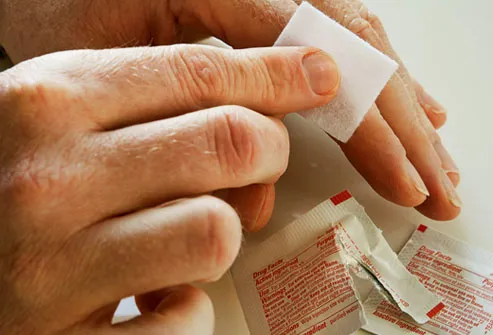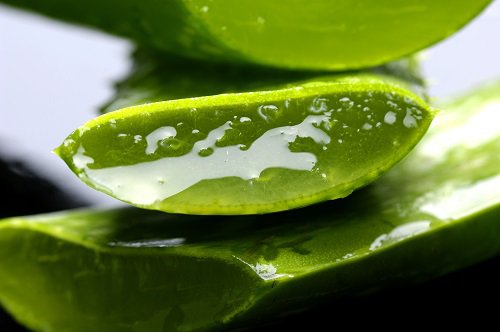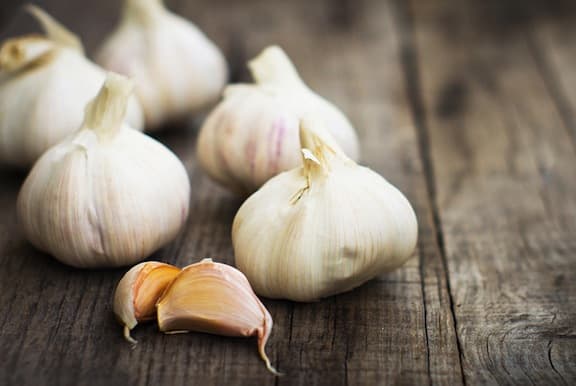
Accidents or injuries are the most common cause of these types of wounds. Some of the risk factors that can make a person more prone to wounds include age, illness, steroid use, radiation and chemotherapy, diabetes and excessive smoking.

Some of the symptoms that accompany wounds are bleeding, redness, swelling, inflammation, pus, pain and tenderness.
All wounds need care to prevent infection. Minor wounds can be healed at home with natural treatments. But serious, deep or infected wounds require a doctor’s care.
Here are the top 10 ways to heal minor wounds.
1. Clean the Wound
Proper cleaning of a wound is important to ensure optimal healing. The easiest way to clean minor wounds is with clean running water.

Use cool water under moderate pressure and a mild soap to wash the wounded area for 10 to 15 minutes. If you do not have filtered water then use boiled and cooled water, or distilled water.
This will help remove as much dirt, debris and bacteria as possible. Plus, the cool water will help lessen the pain. Gently pat the area dry using a clean towel, then cover it with a sterile dressing or bandage.
2. Coconut Oil
Coconut oil can effectively heal wounds due to its amazing antibacterial, anti-inflammatory, moisturizing and healing properties. This has been proven by several studies. Coconut oil can also keep infections at bay and prevent scarring.

- Apply extra-virgin coconut oil on the wounded area.
- Put a bandage over it to seal in the moisture.
- Reapply coconut oil and change the bandage 2 or 3 times a day.
- Follow this remedy for several days to prevent scarring.
3. Indian Lilac
Indian lilac, also known as neem, has high content of essential fatty acids that build collagen, maintain skin elasticity and promote wound healing. Plus, it has antiseptic and anti-inflammatory properties.

- Mix 1 tablespoon of neem leaves juice and 1/2 teaspoon of turmeric powder to form a paste. Apply this paste on the wound. Leave it on for several hours, then rinse it off with warm water. Reapply again and repeat for several days.
- Alternatively, grind equal amounts of neem leaves, turmeric and Chebulic myrobalan (hartaki) together with a little lime juice. Apply it to the wound and allow it to dry. Follow this remedy 2 or 3 times a day.
4. Turmeric
Turmeric is a natural antiseptic and antibiotic agent that can be used to heal minor wounds and prevent infection. According to a study published in the journal Molecular and Cellular Biochemistry, the curcumin in turmeric improves wound healing by modulating collagen and decreasing reactive oxygen species.

- If there is bleeding, you can apply some turmeric powder directly on the wound. Bleeding will stop immediately.
- To promote optimal healing, mix 1/2 tablespoon of turmeric in enough linseed (also known as flaxseed) oil to form a paste. Apply it on the wound 2 or 3 times a day to reduce pain and prevent infection.
- You can also mix 1 teaspoon of turmeric powder in a glass of hot milk and drink it daily for a few days before going to bed.
5. Aloe Vera
The use of aloe vera to treat wounds dates back thousands of years. Aloe vera has analgesic, anti-inflammatory and soothing properties. Also, its gel is rich in phytochemicals that can ease pain, reduce inflammation, increase the moisture content in the skin and promote healing.

- Cut open an aloe vera leaf and extract the gel.
- Apply this gel on the wound and allow it to dry on its own.
- Clean the area with warm water and pat dry with a soft towel.
- Repeat several times a day until the wound heals completely.
6. Garlic
Garlic has been used to heal wounds for years due to its antibiotic and antimicrobial properties. It can stop bleeding, reduce pain and promote healing. Also, garlic boosts the body’s natural defenses to prevent infection.

- In case of bleeding, clean with wound with water and apply a few crushed garlic cloves on it. The pain and bleeding will stop immediately.
- To help the wound heal, crush a few garlic cloves into a paste, and spread it on a piece of sterile gauze. Put the gauze over the wound and wrap a sterile bandage around it. Leave it on for 20 minutes, then rinse it off with warm water. Repeat twice daily until the wound heals completely.
7. Calendula
Calendula can also be used to heal minor wounds. This herb has anti-inflammatory and mild antimicrobial properties that can reduce inflammation and pain as well as encourage quick healing.

- Crush a few fresh calendula flowers to extract the juice. Apply this juice on the wound 2 or 3 times a day.
- You can also buy calendula salves at health food stores and apply it on your wound as directed.
8. Raw Potato
You can use potato poultice to heal minor wounds. It helps moisturize the wounded area and encourage quick healing.

- Grate 1 to 2 raw potatoes and spread them onto a clean cloth.
- Place the poultice over the affected area.
- Leave it on for 4 to 5 hours, then remove it and clean the area with warm water.
- Reapply a fresh potato poultice.
- Continue this remedy daily until healed.
9. Plantain
The natural antibacterial and anti-inflammatory properties of plantain help heal minor wounds. It can even reduce associated itching or pain.

- Pound a few fresh plantain leaves into a paste.
- Apply the paste on the wound.
- Allow it to dry, then rinse it off with warm water.
- Follow this remedy several times a day until the wound gets better.
10. Eat Healthy
There are several vitamins and minerals that can help in the healing process of different types of wounds.

- Eat foods rich in vitamin A like carrots, cantaloupe, pumpkin, apricots and tomatoes to promote new cell growth.
- Eat vitamin C-rich foods like broccoli, grapefruits, kiwi, oranges and peppers to help your body make collagen and new skin tissue.
- Eat foods with vitamin E like wheat germ, hazelnuts, almonds and spinach to promote healing.
- Eat zinc-based foods like whole grains, nuts and seeds to stimulate wound healing.
- Eat foods with B-complex vitamins like cheese, spinach, legumes and fish to aid wound healing and skin health.
Additional Tips
- Apply ice if there is bruising or swelling to reduce pain.
- Apply lavender essential oil on the affected area to help promote healing.
- Apply tea tree oil after diluting it with olive oil on the wound 3 to 5 times a day.
- Soak a cloth in some witch hazel and apply it to the wound to reduce swelling and speed up recovery.
- Avoid smoking and drinking as it can delay healing.
- Eat healthy and drink ample amounts of water to promote healing.
- Keep the wound clean and exposed to the air at regular intervals.
- Do not pick at wounds as it can cause infection.
- Avoid stress as it may interfere with healing.

Resources:
http://www.ncbi.nlm.nih.gov/pubmed/22336796 http://www.karger.com/Article/FullText/313516 http://www.ncbi.nlm.nih.gov/pubmed/22336851 http://link.springer.com/article/10.1007%2Fs11010-006-9170-2 http://www.ncbi.nlm.nih.gov/pubmed/19601397 http://pennstatehershey.adam.com/content.aspx?productId=107&pid=33&gid=000175











Post a Comment